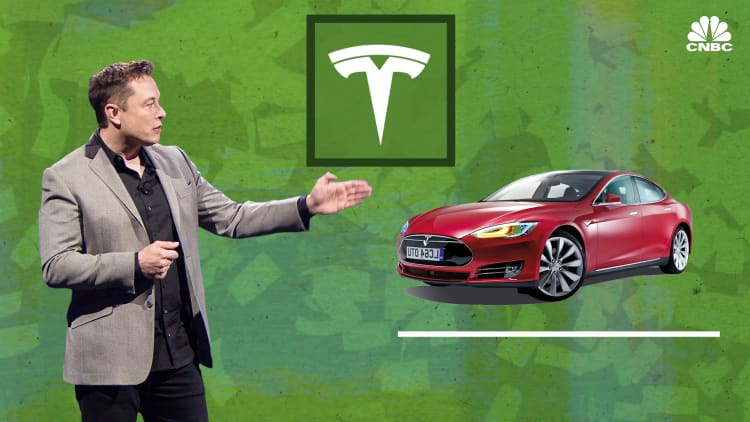Electric car maker Tesla said Chinese customs authorities delayed shipments of the company's Model 3 sedans into the country because labels for the vehicles were misprinted.
Officials are now allowing Tesla to import Model 3 sedans into China after reports said the vehicles were being held due to irregularities.
"This error resulted from misprinted labels on certain Model 3 vehicles," a Tesla spokesperson said. "We have already reached a resolution with Chinese customs, and we are working closely with them to resume clearance procedures on these vehicles."
The company said its Model 3 sales in China weren't affected by the snafu.
The news that 1,600 Tesla vehicles were being held up was first reported by Chinese financial publication Caixin.
The company's shares were down by about 1.2 percent in midday trading Tuesday.
Tesla CEO Elon Musk said last week that "challenges" getting cars to China and Europe will likely keep the company from being profitable in the first quarter, though it is unclear if his comments were related to the Model 3s held at Chinese customs.
China is the world's largest car market. Roughly 28 million vehicles were sold in the country in 2018, compared with around 17 million in the United States, the world's second-largest market. It is also the world's largest market for electric vehicles.
Tesla is virtually unique among U.S. automakers in that it imports every car it sells into China. Most foreign manufacturers hoping to gain a foothold in the country partner with Chinese corporations and share revenue and profits.
Tesla has plans to build a factory in Shanghai, which Musk said will be the first facility wholly owned by a foreign automaker in China. The company has a 50-year lease with China's government and is using Chinese banks to fund most of the capital spending associated with the plant, Tesla has said.
"We need to bring the Shanghai factory online," Musk said on Tesla's fourth-quarter earnings call. "I think that's the biggest variable for getting to 500,000 plus a year. Our car is just very expensive going into China. We've got import duties, we've got transport costs, we've got higher costs of labor here. And we've never been eligible for any of the EV tax credits."
There are also anxieties over the potential effect of trade disputes between the United States and China.
"We don't know what's going to happen with the trade negotiations," Musk said. "So it's very important to get those cars especially to China as soon as possible. We hope the trade negotiations go well, but it's not clear. But we need to get them there while there's sort of de facto, sort of a truce on the tariff war."



